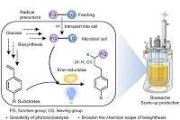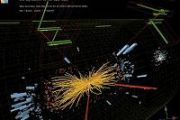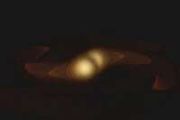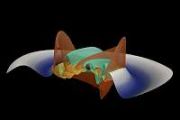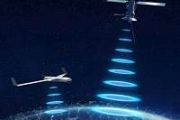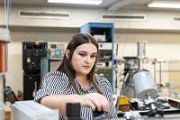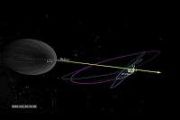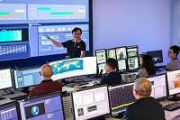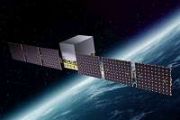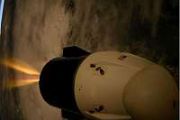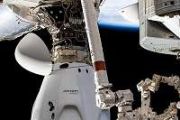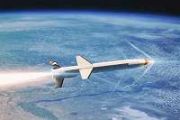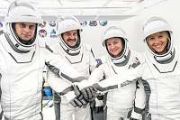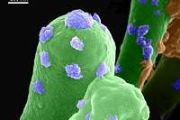
Copernical Team
ISS 90th spacewalk will retreive microorganisms from exterior of space station
 NASA astronauts will venture into space Thursday to scrape microorganisms from the outside of the International Space Station and study the origins of life.
Their live-streamed spacewalk also will include some repairs.
NASA plans to steam "U.S. Spacewalk 90," which is estimated to start at 8 a.m. EDT on Thursday and last about six and a half hours, on NASA+, NASA Television, the
NASA astronauts will venture into space Thursday to scrape microorganisms from the outside of the International Space Station and study the origins of life.
Their live-streamed spacewalk also will include some repairs.
NASA plans to steam "U.S. Spacewalk 90," which is estimated to start at 8 a.m. EDT on Thursday and last about six and a half hours, on NASA+, NASA Television, the Space for a travel quiz!

A new collaboration between ESA and Schiphol Airport in the Netherlands has got passengers thinking about space. Digital screens throughout the airport featuring stunning satellite images of Earth have been stopping travellers in their tracks. That's because these pictures from space are part of a fun Where on Earth? travel quiz.
Eclipse-making double-satellite Proba-3
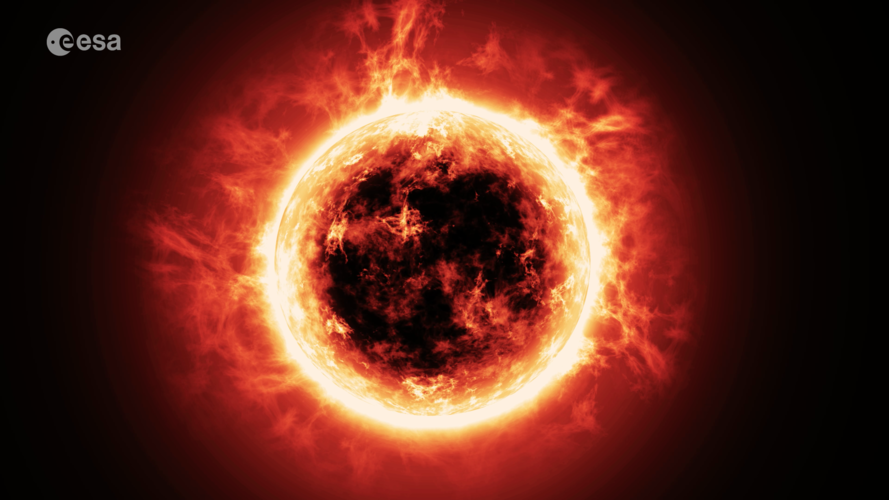 Video:
00:02:54
Video:
00:02:54
Proba-3 is ESA’s – and the world’s – first precision formation flying mission. A pair of satellites will fly together relative to the Sun so that one casts a precisely-controlled shadow onto the other, to create a prolonged solar eclipse in orbit. In the process the mission will open up the Sun’s faint surrounding coronal atmosphere for sustained study. Normally this corona is rendered invisible by the brilliant face of the Sun, like a firefly next to a bonfire.
Due for launch together this autumn, the two Proba-3 satellites will fly 144-m apart for up to six hours
Drone test of planetary landing radar
 Image:
Drone test of planetary landing radar
Image:
Drone test of planetary landing radar Green light for Galileo Second Generation satellite design
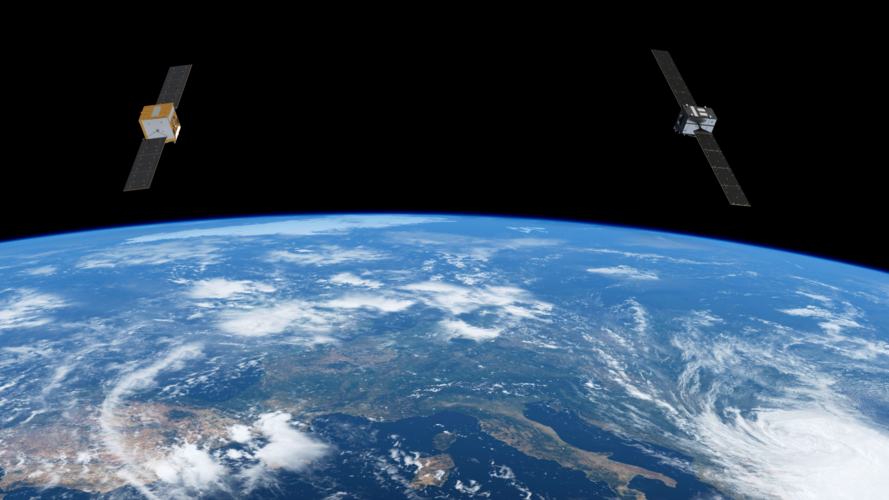
Production of Galileo Second Generation satellites advances at full speed after two independent Satellite Critical Design Review boards have confirmed that the satellite designs of the respective industries meet all mission and performance requirements. This achievement is another crucial milestone hit on time in the ambitious schedule to develop the first 12 satellites of the Galileo Second Generation fleet.
Short commercial space flights may not have big impact on health
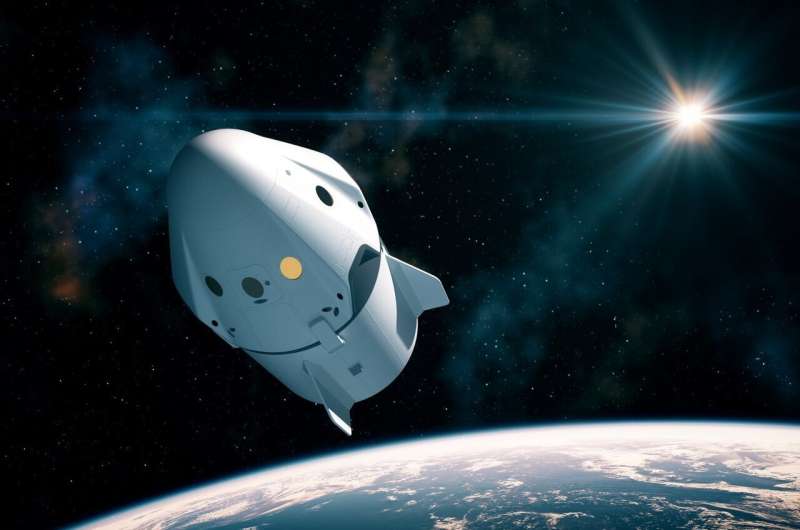
The first all-civilian space mission is shedding light on the potential health risks facing private astronauts. The takeaway is short-duration spaceflights appear to pose none that are significant. The study sample was small—four people who spent three days in low-earth orbit (LEO) on the 2021 Inspiration4 mission.
But it lays the groundwork for an open biomedical database for commercial astronauts' health data and establishes best practices for collecting and dealing with this information, according to a team led by Baylor College of Medicine's Center for Space Medicine in Houston.
"Civilian participants have different educational backgrounds and medical conditions compared to astronauts with career-long exposure to space flight," said study co-author Dr. Emmanuel Urquieta, chief medical officer of the Translational Research Institute for Space Health (TRISH) at Baylor.
"Understanding their physiological and psychological responses to spaceflight and their ability to conduct research is of utmost importance as we continue to send more private astronauts into space."
Like astronauts who do months-long tours of duty on the International Space Station, the hazards facing these four included radiation exposure, sustained microgravity, confinement and isolation.
Landing on Pluto may only be a hop, skip and jump away

There are plenty of crazy ideas for missions in the space exploration community. Some are just better funded than others. One of the early pathways to funding the crazy ideas is NASA's Institute for Advanced Concepts. In 2017 and again in 2021, it funded a mission study of what most space enthusiasts would consider only a modestly ambitious goal but what those outside the community might consider outlandish—landing on Pluto.
Two major questions stand out in the mission design: How would a probe arriving at Pluto slow down, and what kind of lander would be useful on Pluto itself? The answer to the first is one that is becoming increasingly common on planetary exploration missions: aerobraking.
Pluto has an atmosphere, albeit sparse, as confirmed by the New Horizons mission that whizzed past in 2015. One advantage of the minor planet's relatively weak gravity is that its low-density atmosphere is almost eight times larger than Earth's, providing a much bigger target for a fast incoming aerobraking craft to aim for.
Human bodies mostly recover from space, tourist mission shows
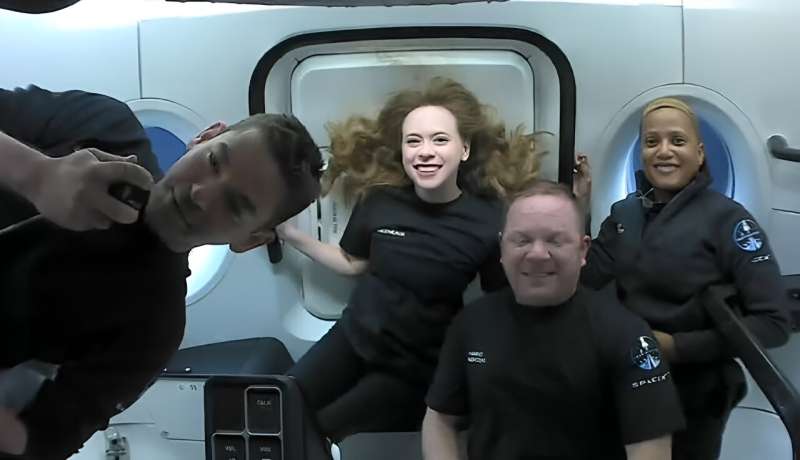
How bad for your health is space travel? Answering this question will be crucial not just for astronauts aiming to go to Mars, but for a booming space tourism industry planning to blast anyone who can afford it into orbit.
In what has been billed as the most comprehensive look yet at the health effects of space, dozens of papers were published on Tuesday using new data from four SpaceX tourists onboard the first all-civilian orbital flight in 2021.
Researchers from more than 100 institutions across the world sifted through the data to demonstrate that human bodies change in a variety of ways once they reach space—but most go back to normal within months of returning to Earth.
Researchers explore how the immune system goes awry during space travel and the implications for human aging on Earth
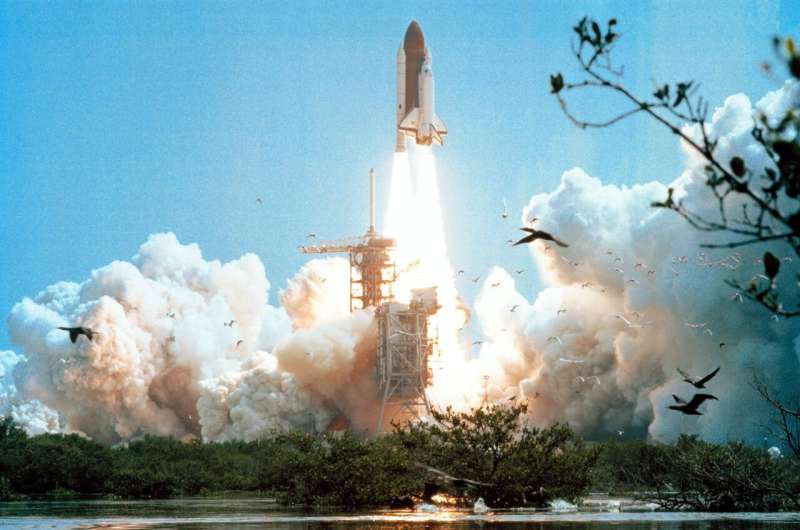
As long as humans have been traveling into space, astronauts have experienced significant health effects from the extreme conditions of space flight, notably the reduction of gravity.
Two Buck scientists led a team that has revealed for the first time how the lack of gravity affects the cells of the immune system at single cell resolution. The co-senior authors, along with Christopher E. Mason, Ph.D. of Weill Cornell Medical College, Associate Professor David Furman, Ph.D. and Associate Professor Daniel Winer, MD, have published an extensive survey of how gravity affects immune cells, and the identification of "space nutraceuticals" to counter aberrant effects of microgravity on these cells. The work is published in Nature Communications
"We show how simulated microgravity shapes immune cells and how the changes in force alter the cells' function at the single cell level," said Winer. "This level of resolution is new and exciting in understanding the effects of microgravity on cells."
Using cells in simulated microgravity, combined with data from space flight from astronauts and mice on the International Space Station, the researchers created a complete picture of how the different cells of the immune system in the peripheral blood are shaped by reduced gravity.
Would astronauts' kidneys survive a roundtrip to Mars?
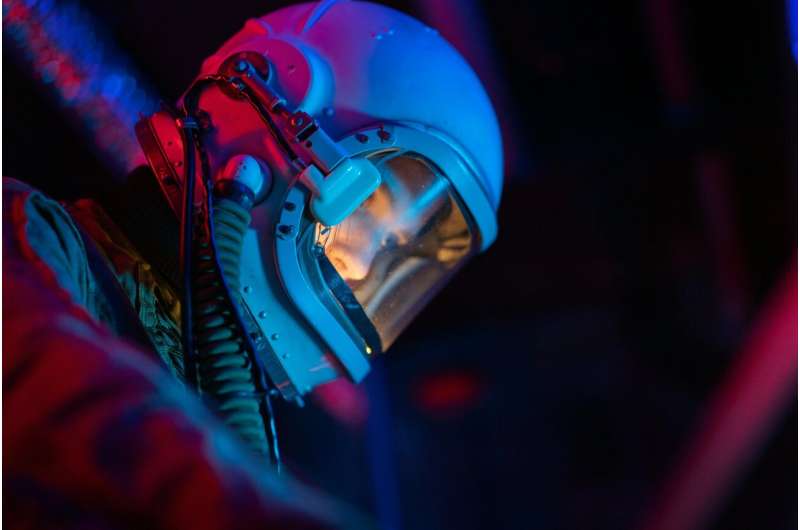
The structure and function of the kidneys is altered by space flight, with galactic radiation causing permanent damage that would jeopardize any mission to Mars, according to a new study led by researchers from UCL.
The study, published in Nature Communications, is the largest analysis of kidney health in space flight to date and includes the first health dataset for commercial astronauts. It is published as part of a Nature special collection of papers on space and health.
Researchers have known that space flight causes certain health issues since the 1970s, in the years after humans first traveled beyond Earth's magnetic field, most famously during the first moon landing in 1969. These issues include loss of bone mass, weakening of the heart and eyesight, and development of kidney stones.
It is thought that many of these issues stem from exposure to space radiation, such as solar winds from the sun and Galactic Cosmic Radiation (GCR) from deep space, which the Earth's magnetic field protects us from on Earth. As most manned space flights take place in Low Earth orbit (LEO) and receive partial protection from Earth's magnetic field, only the 24 people who have traveled to the moon have been exposed to unmitigated GCR and only for a short time (six to 12 days).







